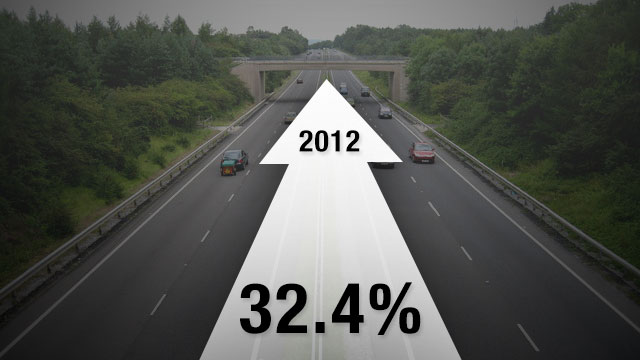SUMMARY
This is AI generated summarization, which may have errors. For context, always refer to the full article.

MANILA, Philippines – Public spending on construction grew 32.4% in 2012, a reversal of the 31.8% decline it saw in 2011, demonstrating the drive of the government to focus on building infrastructure.
Gains were also posted in the private sector, albeit with slower growth of 8.6%, after a 4.5% jump in 2011.
Economists said the 2012 figures were a welcome development as infrastructure is needed to maintain the Philippines’ economic growth.
“There are a number of things we need to address. The backlog in our infrastructure is huge. I don’t think this backlog would be closed in the next 5 years,” Socioeconomic Planning Secretary Arsenio Balisacan said last week.
Balisacan compared the state of Philippine infrastructure today with that of Thailand. “We are only where Thailand was 10 years ago.”
But he said an aggressive infrastructure development plan will put the Philippines at par with Thailand in only 5 years.
“So that’s why you want to grow fast and sustain the growth you need to invest massively in infrastructure,” he added.
Balisacan stressed the importance of private investment in infrastructure. “If it’s possible to get the private sector to buy the urban infrastructure then the money which the government would otherwise use for infrastructure could be used to finance the social sector requirements for poverty reduction.”
World-renowned economist Nouriel Roubini, who spoke at the Philippine Investment Summit 2013 on Wednesday, January 30, said more infrastructure investments are needed to convince international rating agencies to finally grant the country’s long-awaited and much-anticipated investment grade status.
“The government must ensure that it invests more in infrastructure, whether through Public-Private Partnerships (PPP) or private or public investment,” he said. He added that these projects must be undertaken in an efficient, transparent and timely manner.
In 2012, the Aquino administration approved funds and cost increases for a total of 42 big-ticket infrastructure projects amounting to P439.15 billion.
The government has so far been able to roll out, or start the bidding process, for 8 PPPs.
In 2011, slow spending due to delays in infrastructure projects pulled down the country’s growth to 3.9% from 7.6% in 2010.
Growth picked up in 2012 however at 6.6%, thanks to high household consumption and robust services sector growth. – Rappler.com
Add a comment
How does this make you feel?
There are no comments yet. Add your comment to start the conversation.